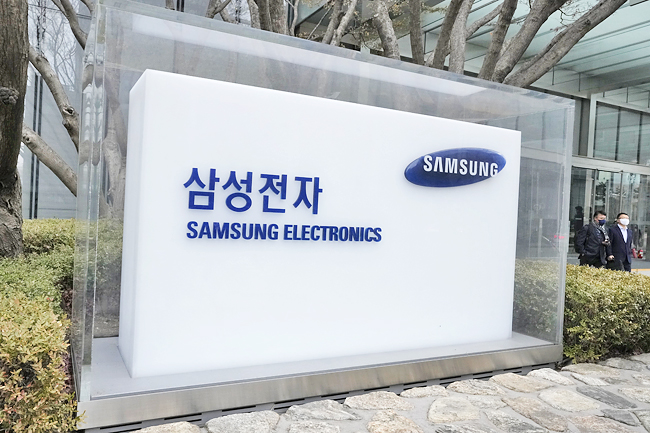SEOUL, SOUTH KOREA (AP) – Samsung Electronics said yesterday it expects to invest KRW300 trillion (USD230 billion) over the next 20 years as part of an ambitious South Korean national project to build the world’s largest semiconductor manufacturing base near the capital, Seoul.
The chip-making “mega cluster,” which will be established in Gyeonggi Province by 2042, will be anchored by five new semiconductor plants built by Samsung. It will aim to attract 150 other companies producing materials and components or designing high-tech chips, according to South Korea’s Ministry of Trade, Industry and Energy.
Samsung’s new plants will be located near its existing domestic factories and will produce both computer memory chips used for storing data and higher-margin logic chips designed to perform a broader range of functions, the company said.
A giant in the global memory business, Samsung is trying to expand its presence in advanced chips, anticipating that demand will soar in coming years with the adoption of new technologies such as 5G wireless networks, artificial intelligence and self-driving cars.
The semiconductor cluster is part of broader government plans announced yesterday to promote six key technology industries the country sees as most crucial for its export-dependent economy. Apart from semiconductors, they include rechargeable batteries, electric vehicles, robotics, displays and bio-technology. The government hopes to draw KRW550 trillion (USD422 million) in corporate investment on those projects through 2026.
South Korea’s plan comes as other technology powerhouses, including the United States, Japan and China, are building up their domestic chip manufacturing, deploying protectionist measures, tax cuts and sizeable subsidies to lure investments. In a meeting with economic policymakers and business leaders yesterday, South Korean President Yoon Suk-yeol described technology industries as the country’s “key economic growth engines and security and strategic assets that are also directly linked to job creation and livelihoods”.
“(South Korea) has world-class manufacturing capabilities and technologies in various high-tech industries such as semiconductors, secondary batteries, and displays, but (government) support and regulatory conditions have been insufficient,” the Trade Ministry said in a statement.
Samsung, South Korea’s biggest company, has seen its profit plummet in recent months as a weak global economy, rattled by the war on Ukraine and high inflation, depressed demand for its consumer electronics products and memory chips.








